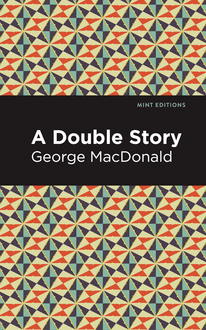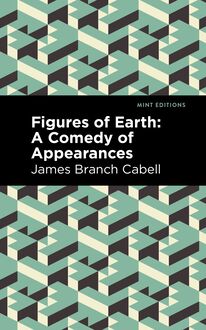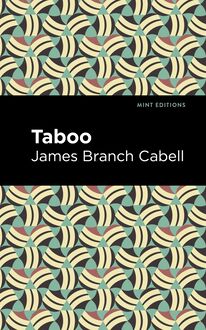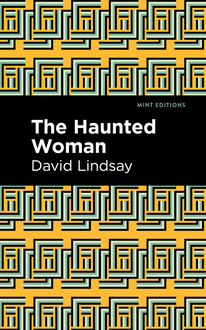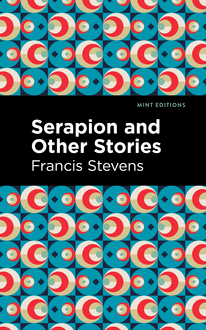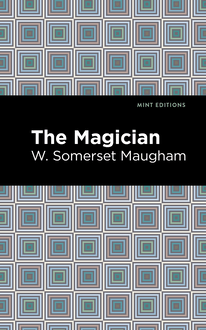-
 Univers
Univers
-
 Ebooks
Ebooks
-
 Livres audio
Livres audio
-
 Presse
Presse
-
 Podcasts
Podcasts
-
 BD
BD
-
 Documents
Documents
-
- Cours
- Révisions
- Ressources pédagogiques
- Sciences de l’éducation
- Manuels scolaires
- Langues
- Travaux de classe
- Annales de BEP
- Etudes supérieures
- Maternelle et primaire
- Fiches de lecture
- Orientation scolaire
- Méthodologie
- Corrigés de devoir
- Annales d’examens et concours
- Annales du bac
- Annales du brevet
- Rapports de stage
La lecture à portée de main
Vous pourrez modifier la taille du texte de cet ouvrage
Découvre YouScribe en t'inscrivant gratuitement
Je m'inscrisDécouvre YouScribe en t'inscrivant gratuitement
Je m'inscrisEn savoir plus
Vous pourrez modifier la taille du texte de cet ouvrage
En savoir plus

Description
“An imaginative, entertaining adventure story.”-E.F. Bleiler
“Enchantment is just what this writer exercised; he fixed pictures in our minds that thirty years have been unable to wear away.”-Graham Green
She and Allan is one of H. Rider Haggard’s most exciting novels of adventure and romance. In bringing together two of his most compelling characters, Allan Quatermain, the quirky English Big-Game hunter and explorer, and the seductive and iconic supernatural African Queen Ayesha, or popularly known as “she-who-must-be-obeyed,” Haggard has created one of the most exciting stories in his body of work.
When Allan Quatermain seeks out the Zulu witch-doctor Zikali in the south of Africa to determine if he can communicate with the dead, he is instructed to travel to a lost kingdom deep in the interior of Africa. Zikali reveals that the truth of his inquiry will only be revealed if Quatermain delivers a message to a mysterious and supernatural white sorceress who rules over a tribe living in the ruins of an ancient city. Quatermain sets out on a perilous journey through uncharted lands full of cannibals, wild beasts, and treacherous brushes with death. When he finally reaches the rubble of the lost kingdom of Kôr, he is summoned into the presence of the immortal Queen Ayesha, “she-who-must-be-obeyed”, and is requested to lead her army into battle against the dreaded kingdom of Rezu. A spellbinding tale of supernatural fiction, She and Allan is one of the most intriguing and exotic works of early 20th century Fantasy.
With an eye-catching new cover, and professionally typeset manuscript, this edition of She and Allan is both modern and readable.
Sujets
Informations
| Publié par | Mint Editions |
| Date de parution | 17 novembre 2020 |
| Nombre de lectures | 0 |
| EAN13 | 9781513266756 |
| Langue | English |
| Poids de l'ouvrage | 2 Mo |
Informations légales : prix de location à la page 0,0500€. Cette information est donnée uniquement à titre indicatif conformément à la législation en vigueur.
Extrait
She and Allan
H. Rider Haggard
She and Allan was first published in 1921.
This edition published by Mint Editions 2020.
ISBN 9781513266312 | E-ISBN 9781513266756
Published by Mint Editions®
minteditionbooks.com
Publishing Director: Jennifer Newens
Project Manager: Gabrielle Maudiere
Design & Production: Rachel Lopez Metzger
Typesetting: Westchester Publishing Services
C ONTENTS Note by the Late Mr. Allan Quatermain Chapter 1. The Talisman Chapter 2. The Messengers Chapter 3. Umslopogaas of the Axe Chapter 4. The Lion and the Axe Chapter 5. Inez Chapter 6. The Sea-Cow Hunt Chapter 7. The Oath Chapter 8. Pursuit Chapter 9. The Swamp Chapter 10. The Attack Chapter 11. Through the Mountain Wall Chapter 12. The White Witch Chapter 13. Allan Hears a Strange Tale Chapter 14. Allan Misses Opportunity Chapter 15. Robertson is Lost Chapter 16. Allan’s Vision Chapter 17. The Midnight Battle Chapter 18. The Slaying of Rezu Chapter 19. The Spell Chapter 20. The Gate of Death Chapter 21. The Lesson Chapter 22. Ayesha’s Farewell Chapter 23. What Umslopogaas Saw Chapter 24. Umslopogaas Wears the Great Medicine Chapter 25. Allan Delivers the Message
N OTE BY THE L ATE M R . A LLAN Q UATERMAIN
My friend, into whose hands I hope that all these manuscripts of mine will pass one day, of this one I have something to say to you.
A long while ago I jotted down in it the history of the events that it details with more or less completeness. This I did for my own satisfaction. You will have noted how memory fails us as we advance in years; we recollect, with an almost painful exactitude, what we experienced and saw in our youth, but the happenings of our middle life slip away from us or become blurred, like a stretch of low-lying landscape overflowed by grey and nebulous mist. Far off the sun still seems to shine upon the plains and hills of adolescence and early manhood, as yet it shines about us in the fleeting hours of our age, that ground on which we stand to-day, but the valley between is filled with fog. Yes, even its prominences, which symbolise the more startling events of that past, often are lost in this confusing fog.
It was an appreciation of these truths which led me to set down the following details (though of course much is omitted) of my brief intercourse with the strange and splendid creature whom I knew under the names of Ayesha , or Híya , or She-who-commands ; not indeed with any view to their publication, but before I forgot them that, if I wished to do so, I might re-peruse them in the evening of old age to which I hope to attain.
Indeed, at the time the last thing I intended was that they should be given to the world even after my own death, because they, or many of them, are so unusual that I feared lest they should cause smiles and in a way cast a slur upon my memory and truthfulness. Also, as you will read, as to this matter I made a promise and I have always tried to keep my promises and to guard the secrets of others. For these reasons I proposed, in case I neglected or forgot to destroy them myself, to leave a direction that this should be done by my executors. Further, I have been careful to make no allusion whatever to them either in casual conversation or in anything else that I may have written, my desire being that this page of my life should be kept quite private, something known only to myself. Therefore, too, I never so much as hinted of them to anyone, not even to yourself to whom I have told so much.
Well, I recorded the main facts concerning this expedition and its issues, simply and with as much exactness as I could, and laid them aside. I do not say that I never thought of them again, since amongst them were some which, together with the problems they suggested, proved to be of an unforgettable nature.
Also, whenever any of Ayesha’s sayings or stories which are not preserved in these pages came back to me, as has happened from time to time, I jotted them down and put them away with this manuscript. Thus among these notes you will find a history of the city of K ô r as she told it to me, which I have omitted here. Still, many of these remarkable events did more or less fade from my mind, as the image does from an unfixed photograph, till only their outlines remained, faint if distinguishable.
To tell the truth, I was rather ashamed of the whole story in which I cut so poor a figure. On reflection it was obvious to me, although honesty had compelled me to set out all that is essential exactly as it occurred, adding nothing and taking nothing away, that I had been the victim of very gross deceit. This strange woman, whom I had met in the ruins of a place called K ô r, without any doubt had thrown a glamour over my senses and at the moment almost caused me to believe much that is quite unbelievable.
For instance, she had told me ridiculous stories as to interviews between herself and certain heathen goddesses, though it is true that, almost with her next breath, these she qualified or contradicted. Also, she had suggested that her life had been prolonged far beyond our mortal span, for hundreds and hundreds of years, indeed; which, as Euclid says, is absurd, and had pretended to supernatural powers, which is still more absurd. Moreover, by a clever use of some hypnotic or mesmeric power, she had feigned to transport me to some place beyond the earth and in the Halls of Hades to show me what is veiled from the eyes of man, and not only me, but the savage warrior Umhlopekazi, commonly called Umslopogaas of the Axe, who, with Hans, a Hottentot, was my companion upon that adventure. There were like things equally incredible, such as her appearance, when all seemed lost, in the battle with the troll-like Rezu. To omit these, the sum of it was that I had been shamefully duped, and if anyone finds himself in that position, as most people have at one time or another in their lives, Wisdom suggests that he had better keep the circumstances to himself.
Well, so the matter stood, or rather lay in the recesses of my mind—and in the cupboard where I hide my papers—when one evening someone, as a matter of fact it was Captain Good, an individual of romantic tendencies who is fond, sometimes I think too fond, of fiction, brought a book to this house which he insisted over and over again really I must peruse.
Ascertaining that it was a novel I declined, for to tell the truth I am not fond of romance in any shape, being a person who has found the hard facts of life of sufficient interest as they stand.
Reading I admit I like, but in this matter, as in everything else, my range is limited. I study the Bible, especially the Old Testament, both because of its sacred lessons and of the majesty of the language of its inspired translators; whereof that of Ayesha, which I render so poorly from her flowing and melodious Arabic, reminded me. For poetry I turn to Shakespeare, and, at the other end of the scale, to the Ingoldsby Legends, many of which I know almost by heart, while for current affairs I content myself with the newspapers.
For the rest I peruse anything to do with ancient Egypt that I happen to come across, because this land and its history have a queer fascination for me, that perhaps has its roots in occurrences or dreams of which this is not the place to speak. Lastly now and again I read one of the Latin or Greek authors in a translation, since I regret to say that my lack of education does not enable me to do so in the original. But for modern fiction I have no taste, although from time to time I sample it in a railway train and occasionally am amused by such excursions into the poetic and unreal.
So it came about that the more Good bothered me to read this particular romance, the more I determined that I would do nothing of the sort. Being a persistent person, however, when he went away about ten o’clock at night, he deposited it by my side, under my nose indeed, so that it might not be overlooked. Thus it came about that I could not help seeing some Egyptian hieroglyphics in an oval on the cover, also the title, and underneath it your own name, my friend, all of which excited my curiosity, especially the title, which was brief and enigmatic, consisting indeed of one word, “ She .”
I took up the work and on opening it the first thing my eye fell upon was a picture of a veiled woman, the sight of which made my heart stand still, so painfully did it remind me of a certain veiled woman whom once it had been my fortune to meet. Glancing from it to the printed page one word seemed to leap at me. It was Kôr ! Now of veiled women there are plenty in the world, but were there also two K ô rs?
Then I turned to the beginning and began to read. This happened in the autumn when the sun does not rise till about six, but it was broad daylight before I ceased from reading, or rather rushing through that book.
Oh! what was I to make of it? For here in its pages (to say nothing of old Billali, who, by the way lied, probably to order, when he told Mr. Holly that no white man had visited his country for many generations, and those gloomy, man-eating Amahagger scoundrels) once again I found myself face to face with She-who-commands , now rendered as She-who-must-be-obeyed , which means much the same thing—in her case at least; yes, with Ayesha the lovely, the mystic, the changeful and the imperious.
Moreover the history filled up many gaps in my own limited experiences of that enigmatical being who was half divine (though, I think, rather wicked or at any rate unmoral in her way) and yet all woman. It is true that it showed her in lights very different from and higher than those in which she had presented herself to me. Yet the substratum of her character was the same, or rather of her characters, for of these she seemed to have several in a single body, being, as she said of herself to me, “not One but Many and not Here but Everywhere.”
Further, I found the story of Kallikr
-
 Univers
Univers
-
 Ebooks
Ebooks
-
 Livres audio
Livres audio
-
 Presse
Presse
-
 Podcasts
Podcasts
-
 BD
BD
-
 Documents
Documents
-
Jeunesse
-
Littérature
-
Ressources professionnelles
-
Santé et bien-être
-
Savoirs
-
Education
-
Loisirs et hobbies
-
Art, musique et cinéma
-
Actualité et débat de société
-
Jeunesse
-
Littérature
-
Ressources professionnelles
-
Santé et bien-être
-
Savoirs
-
Education
-
Loisirs et hobbies
-
Art, musique et cinéma
-
Actualité et débat de société
-
Actualités
-
Lifestyle
-
Presse jeunesse
-
Presse professionnelle
-
Pratique
-
Presse sportive
-
Presse internationale
-
Culture & Médias
-
Action et Aventures
-
Science-fiction et Fantasy
-
Société
-
Jeunesse
-
Littérature
-
Ressources professionnelles
-
Santé et bien-être
-
Savoirs
-
Education
-
Loisirs et hobbies
-
Art, musique et cinéma
-
Actualité et débat de société
- Cours
- Révisions
- Ressources pédagogiques
- Sciences de l’éducation
- Manuels scolaires
- Langues
- Travaux de classe
- Annales de BEP
- Etudes supérieures
- Maternelle et primaire
- Fiches de lecture
- Orientation scolaire
- Méthodologie
- Corrigés de devoir
- Annales d’examens et concours
- Annales du bac
- Annales du brevet
- Rapports de stage
